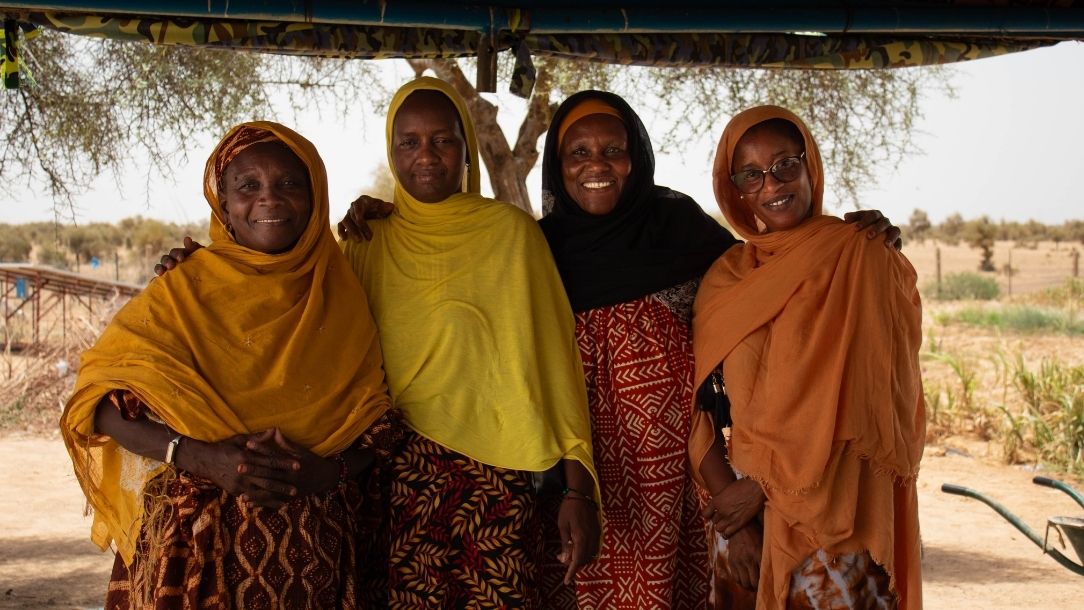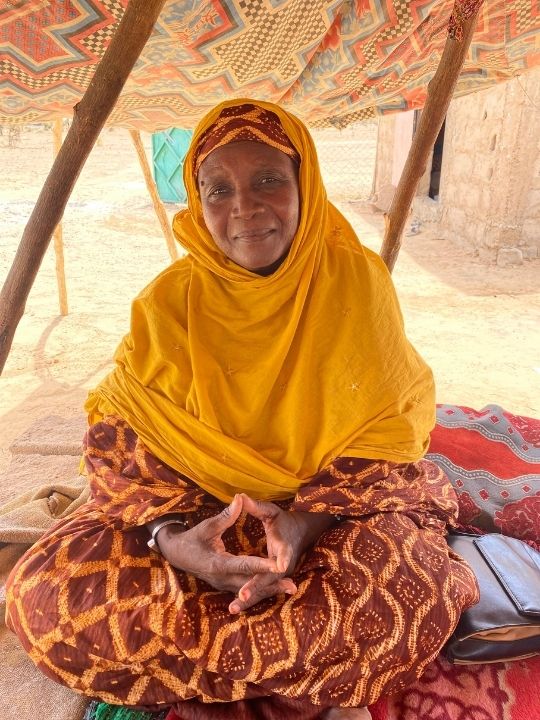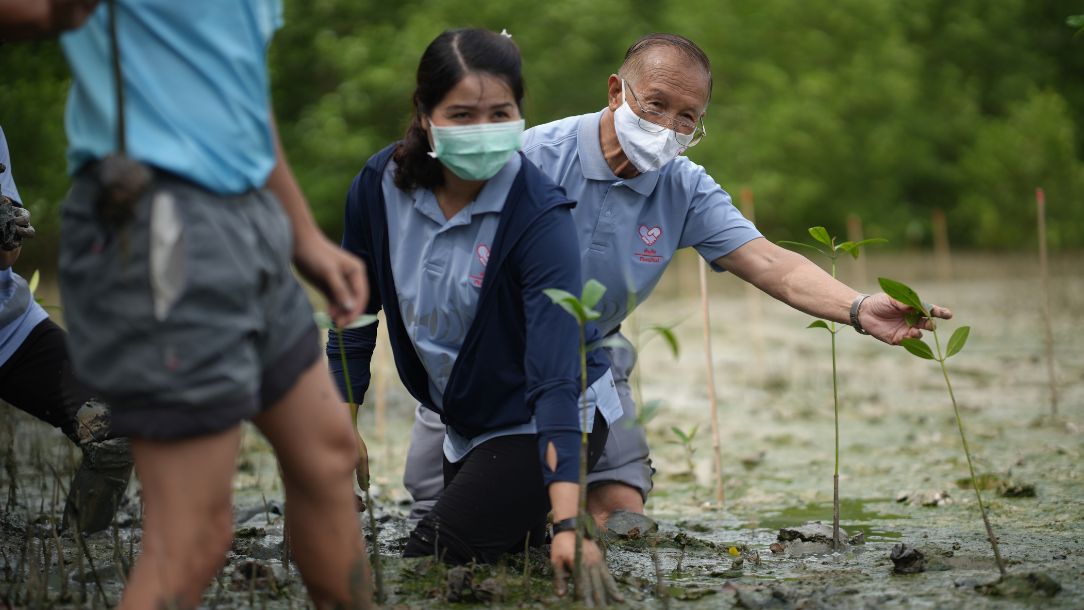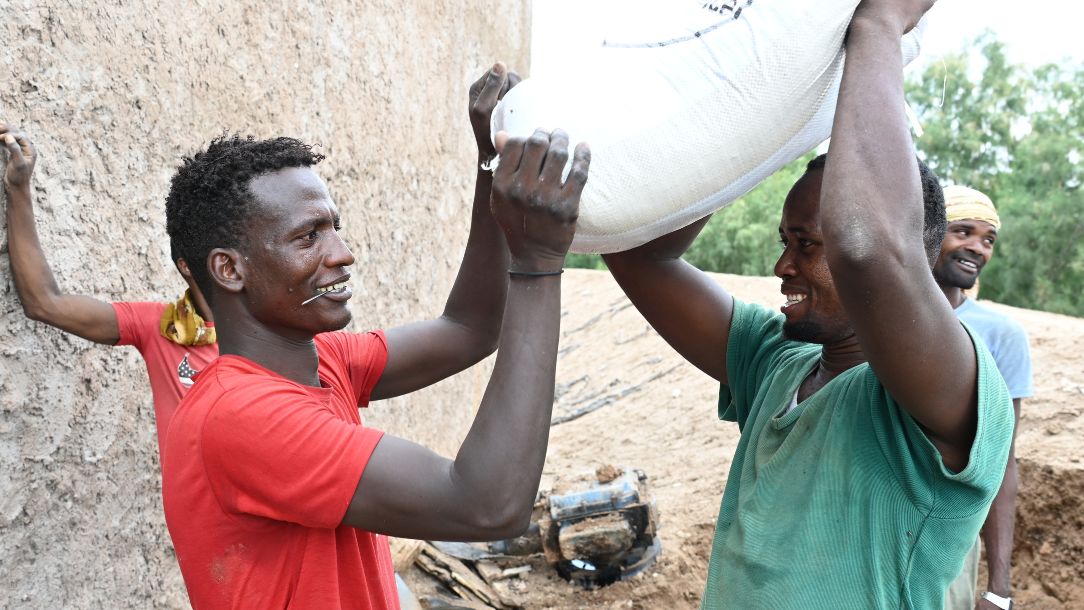Climate change: Red Cross reasons to be hopeful
The effects of climate change are happening now, and we have to adapt. But Red Cross projects helping people adjust to climate change are reason for hope.

Women from the Malal Co-operative, Mauritania, who are learning climate-smart agriculture. PHOTO: Mauritania Red Crescent Society.
With so much in the news cycle at the moment, it’s easy to forget that the world has been quietly and persistently warming up.
Well maybe not so quietly. Last year saw some record-breaking climate emergencies across the globe, from extreme levels of drought and food insecurity in parts of Africa, unprecedented heatwaves across Europe and America and 50-degree spikes in the Middle East. The UK saw its fair share of flooding too, which has spilled into 2024.
It’s been announced the hottest year on record.
As the Red Cross estimates that 96% of all disasters they responded to last year were caused by extreme weather, it’s clear that the climate crisis is a crisis for everyone. And it’s here to stay.
But there are reasons to be hopeful. Across the world, a range of Red Cross and Red Crescent projects are making a real difference to vulnerable communities affected by climate change. Here are just three.
Putting local people front and centre
Locally-based action, the Malal Co-operative, Mauritania
Communities are best placed to know the vulnerabilities and needs facing them over anyone else. Yet they aren’t always included in decision-making or planning when it comes to adapting to the changing climate.
This is especially true for indigenous communities, women, youth, people with disabilities and older people.
But the Malal Co-operative, a Mauritanian Red Crescent supported initiative funded – in part - by the British Red Cross and players of People’s Postcode Lottery, puts women in charge of their own future.
In Boghe, Mauritania, extreme droughts have made growing crops unpredictable and difficult, affecting livelihoods and driving many of the men to seek employment on the coast.
So far, local women have had to rely on borrowing money from family to get by, or face difficult decisions, such as choosing food over school fees. But through the Malal co-operative, they are given smart climate-agricultural training and business training.
The aim is to grow more resilient crops and develop a second income stream if the crops do fail.

“We now have agricultural land as individuals and as a co-operative,” says Fatimata, a member of the co-operative.
After several savvy agricultural investments, using seed money from the co-operative, the women had invested in a supply of moringa trees, which the women sold at Mauritania’s capital: Nouakchott.
With the profits, the women bought something invaluable: peace of mind.
“We put our profits together and have a bank account shared by the women and a Community Solidarity Fund.” Fatimata says.
The Malal Co-operative means that women like Fatimata no longer have to rely on their relatives to send money. Her adapted crops are more resilient to the changes in climate and, using seed money from the co-operative, she has a reliable second income stream.
There are now 38 women working in the co-operative. 20 work in the garden, growing tomatoes, onions and aubergines, which are sold at harvest time.
They are joined by two students from the local agricultural training school are also supporting with upkeep of the community garden.
Having put climate adapted farming methods in practice, the next generation are now learning from these hard-working women and sowing the seeds for a better future.

A nature-based project run by the Thailand Red Cross. Mangroves soak up carbon dioxide and form a barrier against storms. PHOTO: IFRC
People and planet together
Nature-based solutions with the World Wildlife Fund (WWF)
Joint research from the IFRC and WWF shows that when it comes to protecting vulnerable communities from climate change, the power of nature is being overlooked.
So it made complete sense to join forces with WWF – the world’s largest conservation charity - to combine our expertise in people and planet.
Together, we aim to help protect vulnerable communities affected by climate change, and the environment at the same time.
The focus of our partnership is delivering nature-based solutions. These projects will reduce the likelihood of weather-related events from developing, and preventing people’s exposure to events that may already be inevitable.
For example, by restoring degraded floodplains and wetlands we can reduce the impact of floods and promote sustainable agriculture to protect against droughts.
Similarly, mangroves soak up planet-warming carbon dioxide, while coral reefs can provide a protective barrier from storms, and provide habitats for marine life.
There are other benefits too. The joint report also revealed that nature-based solutions could save disadvantaged countries at least US $104 billion a year by 2030 with many positive knock-on effects for both lives and livelihoods.
Find out how we are working with nature to make a huge difference to people's lives and livelihoods.
With 3.3 billion people living in places at risk from climate change, the need for ambitious climate change has never been greater.
Red Cross and Red Crescent societies from across our Movement have been implementing nature-based solutions for some time now, from mangrove restoration in Jamaica, to soil restoration in Haiti.
And initial nature-based work between the British Red Cross, WWF-Kenya and the Kenya Red Cross society has also been successful.
We couldn’t have done any of this work without the support of local communities, which have been with us every step of the way, from project design to advocacy. Communities are not only the real experts on their situations, but the true agents of change.

Partnering with local communities in Kenya to distribute sandbags ahead of the rainy season. El Nino could bring torrential rain this year. PHOTO: IFRC
Early warning systems save lives
Early action before disaster strikes, various locations
Responding to disasters after they happen will never be enough to save lives.
The Red Cross has been working on early warning systems and forecast-based action to prevent floods, droughts or other hazards from becoming disasters. These are called Early Action Protocols (EAPs).
Last year, we implemented EAPs for a variety of climate-related disasters. From floods in Niger, heatwaves in Kyrgyzstan, floods in Mali and Tropical Storm Ana in Mozambique.
This year, weather phenomenon El Nino loomed over the Horn of Africa, bringing forecasts of increased rainfall and a 90% chance of severe flooding across the region. An estimated 1.6 million people are likely to be affected.
Together with the International Committee of the Red Cross, the Somali Red Crescent Society worked closely with communities to help them prepare.
They have distributed 75,000 sandbags across the country as an anticipatory measure.
They have also distributed 24 manual water treatment kits, established four mechanical water treatment units and delivered medical supplies to treat acute water diarrhoea to Red Crescent clinics.
Abdullahi is one among the 200 farmers in Beledweyne who received sandbags to protect their farms from river water. He hopes that the rains are not as harsh as anticipated and will be beneficial for his crop production. He says:
“My whole family is dependent on this farm. I cannot leave because people are saying something is coming. We have to see with our eyes if El Nino will come. We have stopped planting for now. When the floods come, we will rescue what we can”.
You might also like
Disasters around the world
Whether it’s a disaster overseas or flooding in the UK, your donation means the Red Cross can be there whenever disaster strikes.
Donate